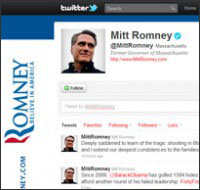From fundraising and campaigning to organization and voter recruitment, the Internet has changed electoral politics in America. Because of the Web’s inherently open nature, it was thought that its use would reduce the socioeconomic inequality in U.S. politics, where more affluent citizens and groups often have higher participation rates and thereby exert greater power.
A 2010 study by scholars at Boston College, Harvard University, and University of California, Berkeley, published in Perspectives in Politics, “Weapon of the Strong? Participatory Inequality and the Internet,” looked at data from a 2008 survey by the Pew Internet and American Life Project to determine if the Internet reduced inequality within political activity.
The study’s findings include:
- Though much media attention has focused on the ability of campaigns to raise small donations on the Internet, the proportion of participation rates was roughly the same on- and offline: 38% of online donations were $50 or less, while the percentage was 39% offline; for donations of $51 to $100, the percentages were 28% and 29% respectively.
- Less than 1% of all online contributions were for amounts over $1,000, compared to nearly 5% of traditional offline contributions.
- Online contributors who donate small amounts are in fact “somewhat better off” financially. “Thus, it seems that the Internet may be bringing in more small donors but it is not bringing in a less affluent set of small donors.”
- Even measuring engagement broadly to include the dissemination of information, fostering conversation and organizing, Internet politics does not seem to attract a significantly different demographic groups than traditional politics. While it “ameliorates somewhat the long-recognized overrepresentation of the middle-aged among political activists,” the authors state that it “leaves undisturbed the fundamental socioeconomic stratification.”
- While activity on social networking sites skews toward younger citizens, because their socioeconomic status is still “under construction,” no clear long-term implications can be drawn.
In conclusion, the authors state that the “digital divide” appears to extend into the political realm, with “a strong positive relationship between [socioeconomic status] and — with the possible exception of political social networking — every measure of Internet-based political engagement we reviewed.”
Tags: elections, inequality


Expert Commentary